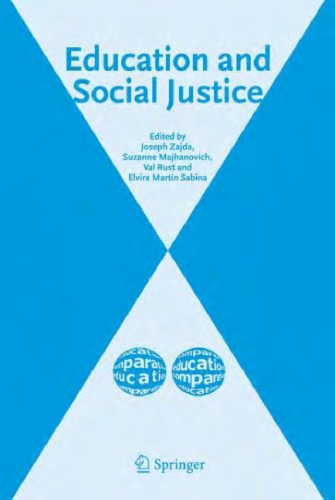

Most ebook files are in PDF format, so you can easily read them using various software such as Foxit Reader or directly on the Google Chrome browser.
Some ebook files are released by publishers in other formats such as .awz, .mobi, .epub, .fb2, etc. You may need to install specific software to read these formats on mobile/PC, such as Calibre.
Please read the tutorial at this link: https://ebookbell.com/faq
We offer FREE conversion to the popular formats you request; however, this may take some time. Therefore, right after payment, please email us, and we will try to provide the service as quickly as possible.
For some exceptional file formats or broken links (if any), please refrain from opening any disputes. Instead, email us first, and we will try to assist within a maximum of 6 hours.
EbookBell Team

0.0
0 reviews
ISBN 10: 1402047215
ISBN 13: 9781402047213
Author: Joseph Zajda, Suzanne Majhanovich
Part 1: Conceptual Foundations and Historical Context
Part 2: Dimensions of Injustice in Educational Systems
Part 3: Educational Interventions and Practices for Social Justice
Part 4: Policy, Systems, and Global Perspectives
Part 5: Future Directions and Enduring Challenges
education and social justice
phd education and social justice
faculty of creative industries education and social justice
csulb equity education and social justice
key issues in education and social justice
Tags: Joseph Zajda, Suzanne Majhanovich, Education, Social